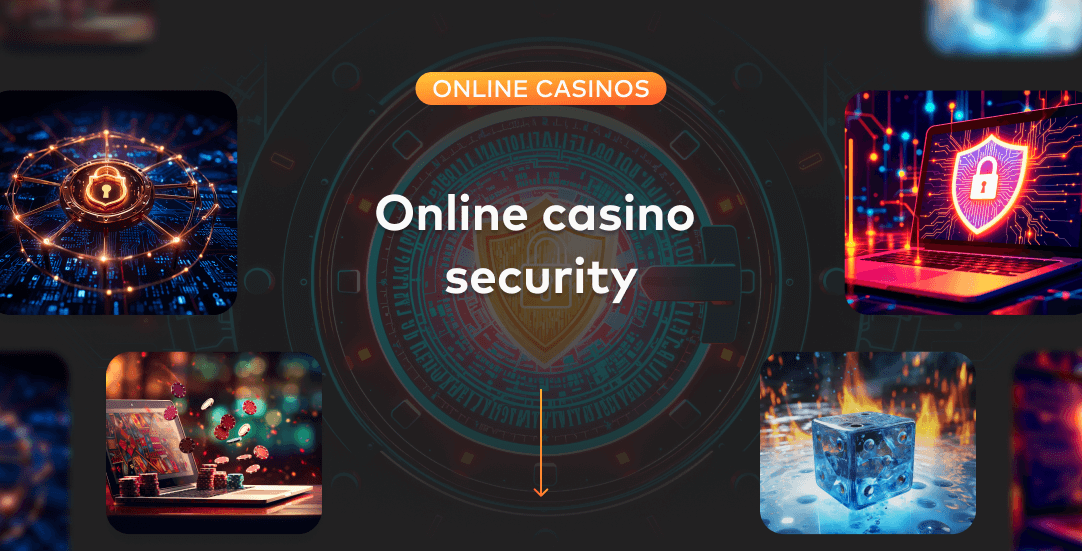Online casino security

iGaming platforms have become one of the fastest-growing online entertainment sectors in the past decade. With the increasing number of users, the volume of collected and aggregated data also grows, often making these platforms a target for online criminals. Find out which strategies and technological solutions are used by other online casino operators to ensure the security of both private and corporate data.
Technical solutions for data protection in iGaming platforms – The foundation
From our experience, before implementing highly complex systems and integrating additional elements into the infrastructure, it is crucial to first establish a solid and secure foundation for the business. When providing web development services for iGaming platform, we always consider actions related to:
- data encryption – one of the most critical security measures in online iGaming platforms is data encryption. Most reputable platforms use SSL (Secure Socket Layer) with 256-bit encryption, ensuring that data transmitted between the player and the iGaming platform’s server is protected from interception by third parties,
- multi-level authentication – many online casino operators implement two-factor authentication, requiring players to confirm login attempts with an additional code sent to their phone or email. This significantly reduces the risk of unauthorized account access. Some operators opt out of this due to the need for a quick login and registration process. However, this increases the risk of account theft and facilitates fraud, such as creating fake accounts to manipulate marketing campaign results,
- fraud detection systems – advanced online iGaming platforms use artificial intelligence algorithms and machine learning to analyze player behavior and detect potential fraud. These systems identify suspicious financial transactions and unusual login patterns,
- secure payment methods – licensed iGaming platforms must support trusted payment methods, such as Visa, MasterCard, PayPal, and cryptocurrencies, while properly configuring payment gateways.
iGaming platform security during scaling
Increasing website traffic brings benefits but also security challenges for both users and the company. The more popular the platform, the higher the risk of sophisticated cyberattacks. Protecting against such attacks requires both technical and organizational measures. Key aspects include:
- distributing infrastructure across multiple servers to minimize the risk of total failure in case of issues with one data center,
- implementing security mechanisms such as Web Application Firewall (WAF), Demilitarized Zone (DMZ), load balancers, and Access Control Lists (ACL), along with regular emergency procedure testing and backups,
- employee training on social engineering threats such as phishing.
Proper server architecture and continuous updates help effectively manage risk and ensure uninterrupted operations even during attacks.
Popular news
Key security requirements for legal operation
Below is a list of the most common security requirements that must be met for an operator to operate legally.
Malta Gaming Authority (MGA)
- process personal data in compliance with GDPR,
- collect data only for specific, legal purposes,
- ensure data accuracy and updates,
- store data only as long as necessary,
- implement appropriate security measures to prevent unauthorized access.
UK Gambling Commission (UKGC)
- implementation of information security management systems,
- encryption of client data and sensitive information,
- access control and regular security assessments,
- compliance with PCI DSS for payment processing,
- obtaining explicit consent from clients for data collection.
Curacao eGaming
- a secure environment for players,
- safe and uninterrupted access to games,
- secure processing of personal and transactional data,
- implementation of information security protocols,
- regular maintenance and updates of hardware and software.
Kahnawake Gaming Commission (KGC)
- comply with Canadian data protection standards,
- ensure security and responsible data processing for players,
- host servers in Mohawk Internet Technologies within Kahnawake.
Anjouan Gaming Authority
- strong data privacy regulations,
- protection of both operator and customer personal information,
- implementation of AML (Anti-Money Laundering) and KYC (Know Your Customer) policies,
- mandatory player identity verification.
A secure online platform is not only essential for obtaining a legal license but also impacts a domain’s reputation in Google’s eyes, directly affecting the SEO ranking of an iGaming platform.
Consult with our experts to verify whether your platform complies with security regulations.
Check if your financial data is secure!
Sign up for an iGaming platform security audit and Brand Monitoring.

FAQ
Data security is fundamental because it protects revenue, safeguards brand reputation, and maintains user trust. It is essential for obtaining and retaining operating licenses, minimizing financial losses from cyberattacks and fraud, and positively influencing how users and business partners perceive the platform. Security breaches can lead to severe legal, financial, and reputational damage.
Key technical security measures include:
- data encryption – implementing strong encryption protocols (e.g., 256-bit SSL/TLS) to secure data transmitted between users and servers,
- multi-factor authentication (MFA) – adding an extra layer of verification during login to significantly reduce the risk of unauthorized account access,
- fraud detection systems – utilizing AI and ML technologies to proactively identify suspicious transactions and patterns of user behavior,
- secure payment processing – integrating trusted, compliant payment gateways and methods (e.g., adhering to PCI DSS standards).
Regulatory bodies (such as the MGA and UKGC) mandate strict security standards as a prerequisite for issuing and maintaining operational licenses; non-compliance prevents legal operation. Additionally, robust security builds user trust, a factor positively recognized by search engine algorithms (like Google), which can contribute to better SEO rankings.
Cyber threats and regulatory requirements are constantly evolving. Regular, independent security audits are crucial for verifying compliance, identifying potential vulnerabilities, and assessing the effectiveness of existing security measures against emerging threats. They are a key component of proactive risk management.
Professional services can significantly enhance platform security. Consider options such as:
- iGaming platform security audits – comprehensive evaluations of technical controls, procedures, and regulatory compliance,
- brand monitoring services – tools to help detect unauthorized use of your brand or related fraud attempts online,
- expert security consultation – advisory services on security strategy, technology choices, and navigating regulatory complexities.










